On 24 March 1944, German police raided the Ulma family farm in Markowa, Poland. The Ulmas had been hiding eight members of two local Jewish families in their house for more than a year and a half, which was a “crime” punishable by death.
The gendarmes first killed the Jews and then murdered the whole family. First they killed the parents, Józef and Wiktoria, who was pregnant and a few days away from her due date, and then their six children: Stanisława, (8), Barbara (7), Władysław (6), Franciszek (4), Antoni (3) and Maria (2). In 2016, the Ulma Family Museum opened in Markowa. At its inauguration, President of Poland Andrzej Duda recounted the martyrdom of the family using the testimony of their neighbours, who were forced by the gendarmes to witness the execution: “One of the Germans said to the neighbours: ‘Look. This is how Polish pigs who help the Jews are slaughtered’. But after killing their parents, the gendarmes did not know what to do with the six children of Józef and Wiktoria. Then the commanding officer of the German police said: ‘We will save you the trouble in the village’, and killed them all, one by one”.
Such horrors were standard practice in occupied Poland, and any defiance of the German authorities met with a brutal response. In Poland, aiding and abetting “enemies of the state” was punishable by death, while in the occupied Western countries the penalty was just imprisonment. According to historian Marek Arczyński, ‘in no occupied country did the Nazis use such repressive and cruel terror against people helping the Jewish population as in Poland’. Nevertheless, many Poles chose resistance even at the risk of the death penalty. The figures speak for themselves, with an estimated 300,000 Poles hiding and helping Jews, and more than 6,600 Poles holding the title of “Righteous Among the Nations” – granted to Józef and Wiktoria Ulma on 13 September 1995. Unfortunately, members of the Ulma family were not the only victims, and a thousand Poles, including women and children, were executed by the Germans.
At first, all this help was spontaneous, with people helping their former neighbours or taking in strangers out of compassion. But in September 1942 the Polish underground state set up a Jewish support committee, known as Żegota, which provided medical and financial aid and, in cooperation with religious communities, issued and distributed more than 50,000 false documents (Catholic baptisms, identity cards, marriage certificates, etc.). Żegota’s work was obscured after the end of the war, as the new communist authorities, backed by the bayonets of the Red Army, tried to eliminate all traces of Polish Catholic resistance. Thus, figures such as Żegota’s co-founder, the writer Zofia Kossak-Szczucka, who should have been lauded as heroes, were consigned to oblivion.
After the fall of the “socialist paradise”, all these stories came to light, and the names of Józef and Wiktoria Ulma, and of many others who had risked their lives, were granted the recognition they deserved. On 10 September, the Ulma family, including their unborn son, were beatified in Markowa at a Mass presided over by Pope Francis’ envoy, Cardinal Marcello Semeraro. During the ceremony, attended by 30,000 pilgrims, the Pope’s address in St Peter’s Square was broadcast live. In his address, he described the Ulmas as a “ray of light” in the darkness of war. After the Mass, President Duda thanked Pope Francis for the “extraordinary” beatification of the Ulma family: “Thank you for showing the historical truth about those times, about the fate of the Poles under German occupation”.
However, despite its importance, the beatification was not without controversy. A year ago, the Polish government demanded 1.3 billion Euros from Germany in war reparations for damages caused during World War II. The request was rejected by the German government, which considers that “the issue of reparations has been settled”. With no changes since then, in July a train service on Przemyśl-Berlin route was introduced, with the train decorated with pictures and texts, in Polish and English, telling the story of the Ulma family. The other controversy was internal, because of the Polish general election is in mid-October. For the left-wing media, the beatification is just another element of the Polish government’s election propaganda campaign. It is clear that the Polish Left doesn’t know much about beatifications because, in these cases, the dates are set by the Vatican.
When reading the story of the Ulma family, I recalled the murder of Ivanka Nowak and her unborn child. Ivanka Nowak, who is in the process of beatification along with other Slovenian martyrs, was a Catholic teacher sentenced to death by communist partisans in 1942. Although she was in her sixth month of pregnancy, the partisans forced her to dig her own grave and strangled her. Yet before her death she wrote a letter that was a moving testimony to her faith and love for her unborn child. Such stories are tales of sacrifice, courage and love. Sadly, those stories, which should be known and remembered, cannot prevent atrocities from being committed again and again. New mass graves appear, and the statues of murderers, torn down almost 70 years ago, are erected once more. But what the stories like that of the Ulmas can teach us is that even when darkness reigns, light can still appear.
This article was authored in cooperation with The Three Seas Foundation – Fundacja Trójmorza and PZU SA.
Read also
José Luis Orella: "The degradation of the national community and society generates weaker, more impressionable and manageable people".
osé Luis Orella is a lecturer in Contemporary History at the CEU San Pablo University, PhD in Contemporary History, specialising in political thought in Spain and Central Europe from the University of Deusto and in Political Law from the UNED.
Álvaro Peñas
“Fear is Kremlin’s favourite argument and the one most used by Russian propaganda”: An interview with Oleksandr Shulga
Dr. Oleksandr Shulga is the director of the Institute for the Study and Analysis of Russian Conflicts (IKAR), the only Ukrainian institution that sociologically monitors what is happening in Russia and currently focuses on analysing Russian propaganda through what is published in Russian media and social networks.



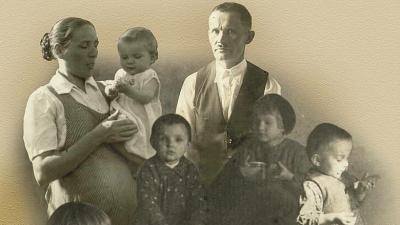



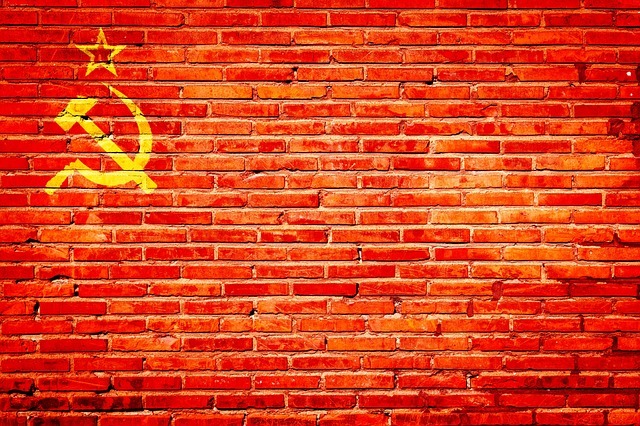
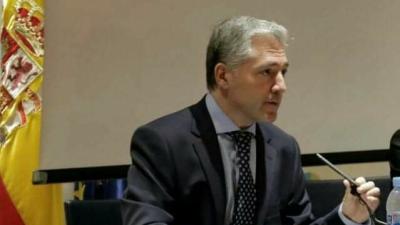

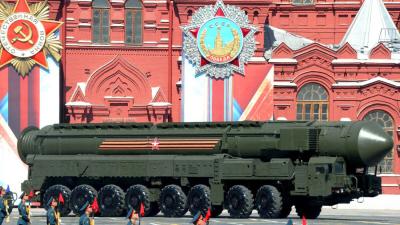

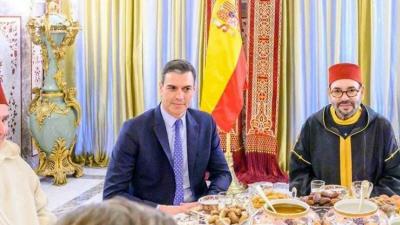

Comments (0)